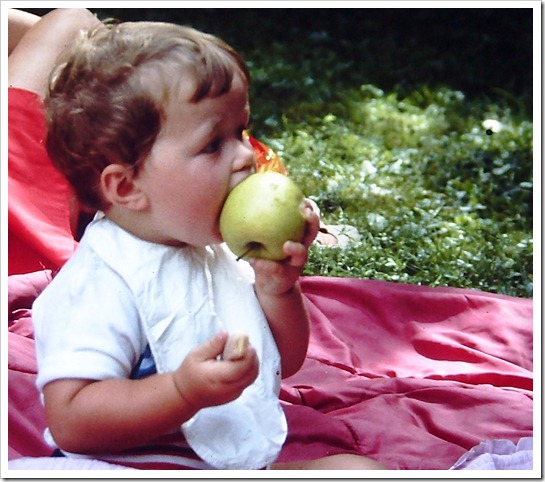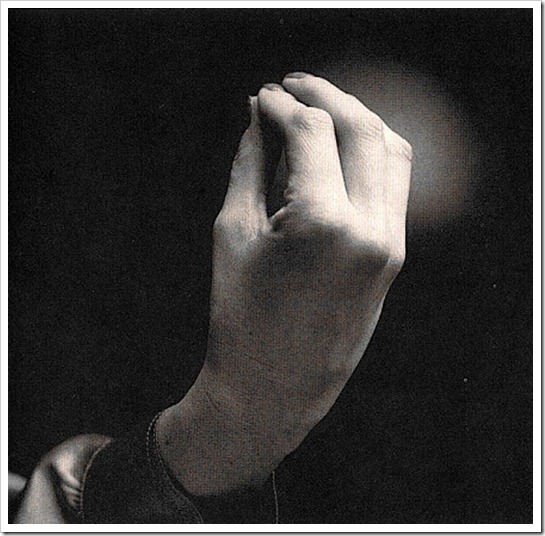Italian Fruit and Vegetable Proverbs and Sayings Posted by Serena on Jun 12, 2014 in Culture, Italian Language
They say that an apple a day keeps the doctor away. Well, true or not we have exactly the same expression in Italian: una mela al giorno leva il medico di torno. However, perhaps because of our national passion for food, we have many more proverbs and idiomatic expressions involving fruit and vegetables. Let’s have a look at some of the most common ones:
 |
| Phil Richards. An Apple A Day (CC) |
Capitare a fagiolo = perfect timing, at just the right moment (Literally: to come along like a bean). Example: Bravo, sei capitato proprio a fagiolo, mi serve una mano! = Well done, you’ve arrived just at the right time, I need a hand. Variations on this expression are: cadere/cascare a fagiolo = fall/drop like a bean; venire a fagiolo = arrive like a bean. The origins of this strange expression are unknown.
Prendere due piccioni con una fava (Literally: to catch two pigeons with one broad bean) is a variation of the well known English saying: to kill two birds with one stone. Example: Se andiamo a far la spesa domani mattina passiamo anche a riportare il trapano a Michele, così prendiamo due piccioni con una fava = If we’ll go shopping tomorrow morning we can also go by Michele’s to return the drill, we’ll kill two birds with one stone. This saying refers to an old method of wild pigeon hunting in which a broad bean was tied to a rope fixed to the ground as bait.
Essere come il prezzemolo = (Literally: to be like parsley), meaning to be omnipresent, to pop up in all situations, just as parsley is used in a wide variety of different dishes. Example: Giorgio è come il prezzemolo, dovunque vai lo trovi sempre = Giorgio is like parsley, you meet him everywhere you go.
Cadere come una pera = (Literally: to drop like a pear). This is used when referring to a person who suddenly drops to sleep, or someone who easily falls into a trap. Example: Ero così stanco quando ho finito di tagliare l’erba che sono caduto come una pera = I was so tired when I finished cutting the grass, that I dropped like a pear. This expression is also used to ironically describe a person who suddenly falls madly in love: Giorgio è caduto come una pera per Luisa = Giorgio has fallen madly in love with Luisa. Variations on this expression are: cadere come una pera matura = drop like a ripe pear; cascarci/cadere come una pera cotta = fall like a cooked pear.
Non importare un fico secco = to not matter/give a damn (Literally: to not care a dry fig). A dry fig is considered a fruit of little or no value (apart from when I want to buy them and they always seem too expensive!) Hence we might say: non mi importa un fico secco se a te non piace, io lo compro lo stesso = I don’t give a damn whether you like it or not, I’m buying it anyway. Variations on this expression are: non valere un fico secco = to not be worth a damn.
Aver poco sale in zucca = to be not very bright, or to have no common sense (Literally: have little salt in the pumpkin) N.B. pumpkin is commonly used as a euphemism for head, whilst salt is seen as a symbol of wisdom. Example: Giorgio è simpatico ma ha poco sale in zucca = Giorgio is likeable, but he hasn’t got much common sense.
 |
| The Gesture for ‘Che Cavolo Vuoi?’ (What the F#@k Do You Want?) |
Non capire un cavolo = to not understand a damn thing (Literally: to not understand a cabbage). Il cavolo (the cabbage) is found in many idiomatic expressions for two main reasons: it has little commercial value, and it is used as an euphemism for the word cazzo, the most popular rude word for penis (a bit like saying ‘sugar!’ in English instead of ‘shit!’). Example: Parla più lentamente ché non capisco un cavolo = speak more slowly, because I don’t understand a damn thing. Here are some more common expressions using cavolo:
non fare un cavolo = to not do a damn thing (Literally: to not do a cabbage). Example: Giorgio non ha fatto un cavolo tutto il giorno = Giorgio hasn’t done a damn thing all day long.
non valere un cavolo = to not be worth a damn. Example: questa maglietta che ho comprato al mercato non vale un cavolo, alla prima lavata è già tutta storta = this T-shirt I bought on the market is not worth a damn, after the first wash it’s already gone all wonky.
farsi i cavoli propri = to mind one’s own business (Literally: to do your own cabbages), a euphemism for farsi i cazzi propri. Example: Giorgio è un ficcanaso che non si fa mai i cavoli propri = Giorgio is a person who’s always sticking his nose in and never minds his own business. N.B. ficcanaso (Literally ‘nose sticker’) is a common way of describing a nosy person.
starci/entrarci come i cavoli a merenda = To have no relevance to the topic/facts being discussed (Literally: to fit in like cabbages at snack time). Example: Si può sapere di cosa stai parlando? Ci sta come i cavoli a merenda con quello che dicevamo = What are you talking about? It has no relevance with what we were saying.
Here’s a link to an old blog in which we explored idiomatic expressions found in both Italian and English: Una Mela al Giorno

Build vocabulary, practice pronunciation, and more with Transparent Language Online. Available anytime, anywhere, on any device.




Comments:
Transparent Language:
Comment from Facebook:
Love the parsley reference. There has to be an explanation on the roots of “prezzemolo” – where did the word come from?
Serena:
@Transparent Language Salve. I had a look on the Enciclopedia Treccani and found this interesting etymology for the word prezzemolo: it comes from two Greek words meaning “pietra” (stone) and “sedano” (celery). It literally means: the celery that grows in the stones.
Saluti da Serena